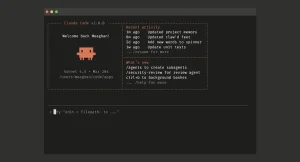The Impact of AGI Are We Ready for the Future

The world of artificial intelligence is buzzing with the news of another departure from OpenAI. Miles Brundage, once a key player at the company, has shared some insights that deserve attention.
Brundage’s recent blog post sheds light on AGI Readiness. Although it lacks drama, his remarks are eye-opening. He challenges whether OpenAI or any lab is truly prepared for the monumental impacts of AGI.
The Unpreparedness of AI Labs
Brundage boldly states that neither OpenAI nor any frontier labs are ready for AGI. This sentiment challenges the vision of a future seamlessly integrated with advanced technology. Instead of a utopia, we’re faced with a sobering reality: the exciting ride towards AGI includes unexpected bumps.
The High Stakes of Leaving OpenAI
Brundage left due to reasons outside the industry. He highlights the high opportunity costs and restrictions within OpenAI. It’s challenging to express views effectively when affiliated with a company under scrutiny for its early model releases.
His call for independent voices in AI policy conversations underscores the need for transparency. When industry leaders make statements, they’re often interpreted through a lens of bias.
Understanding AGI Readiness
AGI’s transformative power could affect everything from medicine to finance. However, Brundage warns that neither OpenAI nor the world is ready for its consequences.
AGI requires a shared understanding among all stakeholders. This includes acknowledging both its positive and negative impacts.
If successful, AI governance won’t just prevent disasters. It’ll build a better, fairer world. But getting there demands hard work and vigilance on many fronts.
Navigating the Dangerous Waters of AI
There are many unresolved dangers with AI. Brundage points to the pressing need for rapid safety and policy research.
Tools to align AI with human goals are still in development. Yet, progress is often hampered by insufficient support for these crucial areas.
The recent disbanding of a team focused on AI alignment highlights the challenges. OpenAI faces criticism for not prioritizing safety as urgently as it should.
The Role of Regulatory Frameworks
Brundage emphasizes creating robust regulatory infrastructure. Just like aviation, AI needs stringent oversight to prevent catastrophic failures.
Such regulations, however, risk stifling innovation. Balancing safety with technological progress remains a complex dance.
The societal impact of AI and AGI
AI might transform society, but it’s also fraught with challenges. Brundage is concerned about societal resilience in an AI-driven landscape.
AI could disrupt jobs, affect governance, and bring unforeseen economic consequences. Preparing society for such changes is critical.
Creating policies to handle AI’s economic impact is necessary. The disparity between those with access to AI and those without could deepen existing divides.
Economic Implications of AI Evolution
The potential for AI to change economies is vast. Brundage imagines a world where early retirement is achievable through AI-driven growth.
Yet, during the transition, job displacement is a worry. Especially for those dependent on roles that AI could easily automate.
Building Preparedness and Understanding
Brundage argues for improved assessment of AI progress. Understanding AI’s capabilities ensures better policy development.
OpenAI may not be as ahead of the curve as many believe. Bridging this perception gap is vital for realistic planning.
The future shouldn’t surprise us. Being forewarned and forearmed enables better preparation for AI’s rapid advancements.
Envisioning a Post-Work Society
While AI promises leisure, it risks societal stagnation. The whimsical film ‘WALL-E’ humorously portrays a world of technological convenience.
In a future dominated by AI, distinguishing between leisure and stagnation becomes challenging.
We must create systems ensuring everyone benefits equally from AI advancements to avoid an unequal society.
Reflecting on AI’s Bright and Dark Sides
The conversation feels endless, yet the pressing question lingers: Are we ready for AGI’s future impact?
From addressing job displacement to regulatory challenges, there’s a lot to consider.
It’s clear: AGI’s rapid development demands urgent attention to ensure AI benefits all and doesn’t lead to unintended consequences.
Brundage’s insights are a wake-up call: the race toward AGI is not simply about tech advancements. It’s about readiness.
As we delve deeper into AI’s potential, ensuring informed, balanced, and proactive strategies will be essential for a sustainable future.








